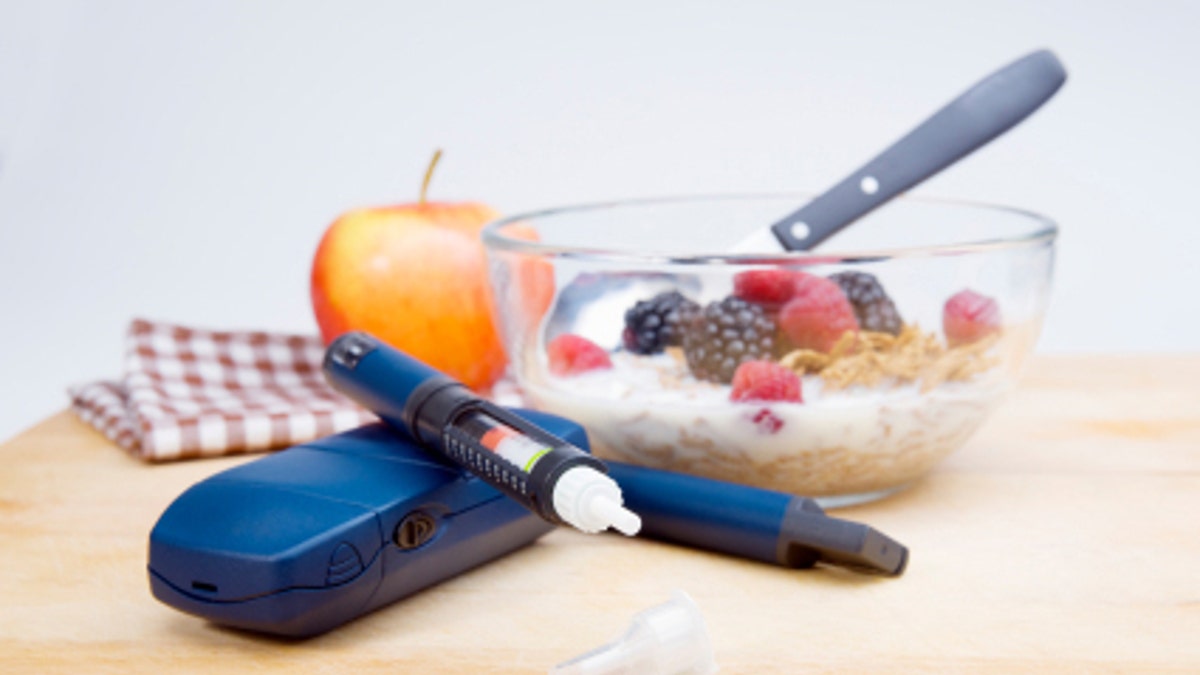
Though diabetes is considered a manageable disease, it takes a lot of effort and thought to control it, especially in the office.
People with type 1 and type 2 diabetes have to worry about finding time to eat, where to test your blood sugar level, whom to tell, symptoms interfering with your job, when to use insulin and how to manage worsening symptoms.
Even if you’ve lived with the disease for a long time, symptoms (and bosses) can change for everyone, meaning that you may need to re-think your ways of managing your disease at any point in your life.
Here are some ways to deal with your disease at work.
1. To tell or not to tell? Experts recommend that you are somewhat open about your illness.
“If you don’t tell certain people, your behavior will seem odd and secretive,” says Rosalind Joffe, who coaches people with chronic illnesses. Also, by not letting co-workers know, you’re not giving them a chance to support you by, for instance, scheduling a meeting around your eating times. Being secretive can also lead to unhealthy behavior.
“When people skip an insulin dose, it often has to do with not being honest with their co-workers and being embarrassed about having to slip out to take the shot,” says Jane Jeffrie Seley, diabetes nurse practitioner at NewYork Presbyterian/Weill Cornell Medical Center.
On the other hand, revealing the illness can elicit unpleasant responses from some people, such as judgments about what you’re eating, if you’re taking care of your health and if you can do your job.
The bottom line: Tell key people when you need something, such as needing to eat at a certain time, or needing to leave a meeting to test your blood sugar level. Make it clear to those you confide in that you want to be in charge of the information and tell people on an as-needed basis. Let them know you don’t want to make it the topic of water cooler conversation.
2. Bring solutions, not problems, to your boss.
“When you talk about the illness, talk about it from a position of strength,” Joffe says. Know your issues and have solutions to each one, so that other people don’t have to worry. If you need an accommodation, come up with it on your own, and be sure to include how you’ll make up for any lost work time.
3. Have an eating plan. People with diabetes need to anticipate when and what they eat in order to maintain steady blood sugar levels.
“If you plan ahead you can make better choices,” Seley says. That means knowing what your options are for lunch and making sure you have healthy choices no matter where you’ll be.
“I encourage people to bring a sandwich and a piece of fruit to work to avoid the issue of finding healthy choices at take-out places,” Seley adds.
4. Don’t skip (or overeat) breakfast. People with diabetes need to eat three regular meals a day to avoid dangerous dips in their blood sugar, so missing breakfast is out of the question. But the morning take-out options, like bagels or muffins, are loaded with calories and sugar. It’s better to get a Greek yogurt and piece of fresh fruit or multigrain bread with a cheese stick, Seley says. If you do get a bagel or muffin, only eat half.
5. Have glucose-rich food available. If you take mealtime insulin (not long acting insulin), have food ready to help prevent low-blood sugar problems that may occur when there is too much time between your injection and your meal.
6. Keep all your supplies in a small bag. It’s helpful to have everything you need—glucose meter, insulin pens, alcohol wipes, glucose-rich food or tablet—in one place so you have quick and easy access to it if you have to slip out of a meeting quickly. The new insulin pens are easier to carry around since they don’t need refrigeration.
7. Get your flu shot. Getting sick can raise blood sugar, so prevention is key. Both the flu shot and the pneumococcal vaccine are recommended for people with diabetes.
Laurie Tarkan is an award-winning health journalist whose work appears in the New York Times, among other national magazines and websites. She has authored several health books, including "Perfect Hormone Balance for Fertility." Follow her on Twitter and Facebook.
